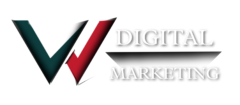Important Terminologies Related To On-Page SEO
On-page SEO involves optimizing individual web pages to rank higher and earn more relevant traffic in search engines. Here are some important terms related to on-page SEO:
- Title Tag: An HTML element that specifies the title of a web page. It’s displayed on search engine result pages (SERPs) as the clickable headline for a given result.
- Meta Description: A brief summary of a web page’s content, often displayed on SERPs under the title tag. It’s used to encourage clicks from users.
- Header Tags (H1, H2, H3, etc.): HTML tags (H1, H2, H3, etc.) used to define headings and subheadings on a web page. Proper use of header tags helps structure content and makes it more readable.
- URL Structure: The format of a web page’s URL, which should be concise, descriptive, and include keywords. Clean URLs help with search engine indexing and user navigation.
- Keyword Density: The percentage of times a keyword appears in the text compared to the total word count. While important, it should not be overdone to avoid keyword stuffing.
- Alt Text: Descriptive text added to the HTML code for images, helping search engines understand the content of images. It also improves accessibility for users with visual impairments.
- Internal Linking: Links that connect one page of a website to another page on the same site. This helps with navigation, user experience, and distributing page authority across the site.
- Content Quality: The overall value of the content to the user. High-quality content is informative, engaging, and relevant, often leading to better rankings.
- Page Load Speed: The time it takes for a web page to load. Faster load times improve user experience and can positively impact search rankings.
- Mobile-Friendliness: The usability of a website on mobile devices. With mobile-first indexing, ensuring that your site is mobile-friendly is crucial for SEO.
- Schema Markup (Structured Data): Code added to your HTML to improve the way search engines read and represent your page in SERPs. It can enhance rich snippets and other SERP features.
- Canonical Tags: HTML elements that help prevent duplicate content issues by specifying the “canonical” or preferred version of a web page.
- Image Optimization: Ensuring that images on a website are properly formatted, compressed, and have relevant alt text to improve loading times and search visibility.
- Outbound Links: Links that point from your website to other websites. While less direct in impact, they can improve the perceived authority and relevance of your site.
- User Engagement Metrics: Measures such as bounce rate, time on page, and click-through rate (CTR), which indicate how users interact with your site and can influence rankings.
- SSL Certificate (HTTPS): Ensures that your website is secure. Google considers HTTPS as a ranking signal.
- Breadcrumb Navigation: A type of secondary navigation that helps users understand their location within a website and aids search engines in understanding the site structure.
Understanding and optimizing these elements can significantly improve a site’s SEO performance.
